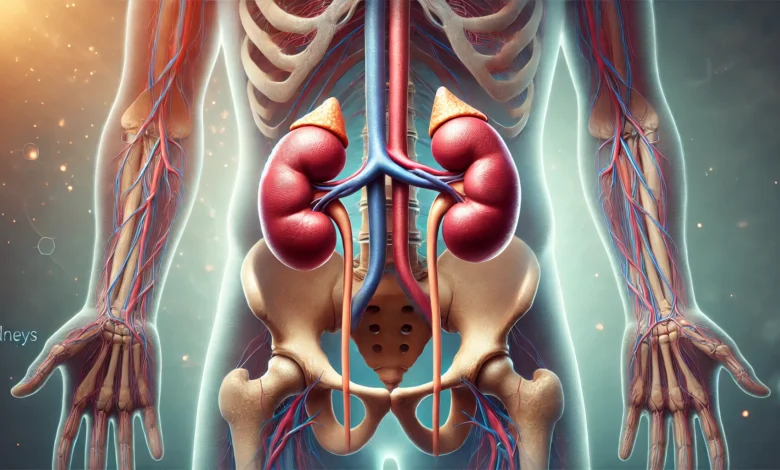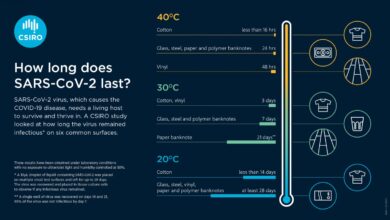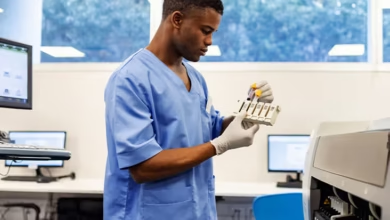Understanding the Importance of Kidneys for Overall Health

Introduction to the Kidneys
Kidneys are essential organs in the human body, often underestimated in their importance. These bean-shaped organs, located just below the rib cage on either side of the spine, play a vital role in maintaining the body’s overall health. Despite their size, roughly as big as a fist, their impact is monumental.
The primary function of the is to filter waste and excess fluids from the blood, which are then excreted as urine. However, their responsibilities extend far beyond that. regulate blood pressure, produce essential hormones, and maintain the balance of electrolytes in the body. Without healthy the body’s internal systems would fall into disarray.
In this article, we’ll explore the fascinating world of their functions, common health issues associated with them, and tips for keeping them in optimal condition. By the end, you’ll understand why taking care of your should be a priority.
How Do Kidneys Work?

The kidneys act as the body’s natural filtration system. Each day, they process about 50 gallons of blood, removing toxins, waste products, and extra water to produce urine. This vital function is achieved through a complex network of tiny filtering units called nephrons, which are housed within each .
Each nephron contains a glomerulus—a tiny blood vessel loop—and a tubule. The glomerulus filters small molecules like water, salts, and waste products, while the tubule reabsorbs needed substances like glucose and certain salts back into the bloodstream. This delicate balance ensures that the body retains what it needs while discarding what it doesn’t.
In addition to waste removal, kidneys help balance electrolytes such as sodium, potassium, and calcium. This balance is crucial for maintaining proper nerve and muscle function. Furthermore, produce hormones that regulate blood pressure and stimulate the production of red blood cells, ensuring your body gets enough oxygen to function efficiently.
Common Kidney Problems
are resilient but can become overwhelmed or damaged due to various factors. Some of the most common -related issues include:
1. Chronic Kidney Disease (CKD)
CKD is a gradual loss of function over time. This condition is often caused by underlying issues such as diabetes, high blood pressure, or prolonged use of certain medications. Symptoms can include fatigue, swelling in the legs or face, and changes in urination patterns. Early detection and management are crucial to slow the disease’s progression.
2. Kidney Stones
stones are hard deposits made of minerals and salts that form inside the . They can be incredibly painful and may cause blood in the urine, nausea, or vomiting. Dehydration, high salt intake, and a diet rich in oxalates are common risk factors for stones.
3. Acute Kidney Injury (AKI)
Unlike CKD, AKI is a sudden loss of function, often due to severe infections, dehydration, or complications from surgery. While it can be life-threatening, prompt treatment can restore function in many cases.
4. Urinary Tract Infections (UTIs)
Although UTIs primarily affect the bladder, untreated infections can travel to the leading to more serious conditions like pyelonephritis. Symptoms include fever, back pain, and frequent, painful urination.
Tips for Maintaining Healthy Kidneys
Keeping your healthy isn’t complicated, but it does require some lifestyle adjustments and awareness. Here are some practical tips to promote health:
1. Stay Hydrated
Water is your ’s best friend. Staying well-hydrated helps your efficiently filter waste and flush out toxins. Aim for at least 8-10 glasses of water a day, more if you’re physically active or live in a hot climate. However, avoid overhydration, as it can strain the
2. Maintain a Balanced Diet
A diet rich in fruits, vegetables, whole grains, and lean proteins supports kidney health. Limit your intake of salt, processed foods, and sugary drinks, which can burden the kidneys. Foods like cranberries, leafy greens, and fish rich in omega-3 fatty acids are particularly beneficial for kidney function.
3. Monitor Your Blood Pressure and Sugar Levels
High blood pressure and diabetes are leading causes of kidney damage. Regular check-ups, a healthy diet, and exercise can help keep these conditions in check. If you already have hypertension or diabetes, follow your doctor’s advice to protect your kidneys.
4. Avoid Overuse of Painkillers
Over-the-counter pain medications, such as ibuprofen and aspirin, can harm the kidneys if used excessively. Always use them as directed and consult a healthcare professional if you rely on them frequently.
5. Exercise Regularly
Physical activity helps control weight, reduces blood pressure, and improves overall cardiovascular health, which indirectly benefits the kidneys. Aim for at least 30 minutes of moderate exercise most days of the week.
When to See a Doctor
It’s easy to take your kidneys for granted, as they often show no symptoms until a problem becomes severe. However, certain signs should prompt a visit to a healthcare provider:
- Persistent fatigue or difficulty concentrating
- Swelling in the ankles, feet, or face
- Changes in urination frequency, color, or odor
- Blood in the urine
- Severe or recurring lower back pain
Early diagnosis and treatment are essential for managing kidney-related conditions. Regular health check-ups and blood or urine tests can help catch potential issues before they become serious.
Conclusion
Your kidneys work tirelessly to keep your body in balance and free of harmful toxins. By understanding their vital role and taking steps to maintain their health, you can significantly reduce the risk of kidney-related issues and improve your overall well-being. Remember, prevention is always better than cure, and simple lifestyle changes can go a long way in ensuring your kidneys stay healthy for years to come.



